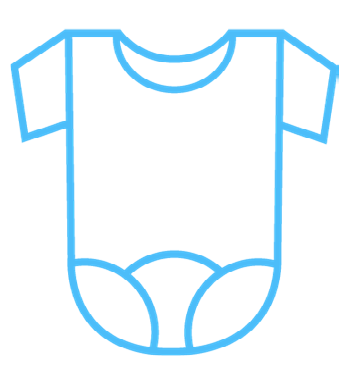Becoming critically ill or disabled is something none of us want to face, but the harsh reality according
Social Security Administration
is that more than one in four of today's 20-year olds will become disabled before reaching retirement age.
When medical issues arise unexpectedly, many people find themselves facing unwelcome financial stress. Sudden medical bills piled on top of regular monthly obligations like mortgage or rent payments, car payments, utilities and living expenses can easily stretch a family's budget to the breaking point. The problem is compounded when the illness or disability makes working impossible.
Fortunately, there are ways to prepare for this scenario that don't involve raiding your savings account in the event a medical disaster strikes.
Disability income insurance
and
critical illness insurance
are two types of insurance products that both offer financial benefits for people facing critical illnesses, mental or physical disabilities.
While these forms of insurance policies have some similarities, there are also key differences. Anyone considering purchasing a disability policy or critical illness coverage should evaluate them carefully before deciding on which type of coverage to purchase.
The Similarities
First, both disability income insurance and critical illness insurance are designed to help alleviate the financial strain that can come with illness.
Both are insurance policies that are issued based on your age and health at the time of application (although physical examinations may not be required). In both cases, you'll need to pay policy premiums to keep the insurance coverage in force. And, in both types of insurance policies, the policy itself will specify a waiting period after diagnosis or disability, before benefits are actually payable.
The Differences
Benefit Payments: Frequency and Duration
Disability insurance offers monthly benefit payments to policy holders who become disabled and are no longer able to work, as those terms are defined under the insurance policy. The policy will state the amount of the monthly payments (as a maximum percentage of the insured's income), and will provide benefits for a maximum time period as specified in the policy. If the insured has other sources of income or recovers enough to return to work, benefit payments will be reduced or will stop entirely.
If the insured remains disabled after the expiration of the policy, benefits cease. Disability policies generally specify that benefits will end at age 65, when the insured's retirement benefits start.
Critical illness coverage, on the other hand, doesn't pay monthly payments to the insured. Instead, if the insured is diagnosed with an illness or medical condition specified in the policy, the insurance company will make one lump-sum payment. Unlike disability insurance, benefit payments under critical illness policies don't hinge on the insured's inability to work. If an insured person is still able to work after their diagnosis, they may do so and still receive contractual policy benefits.
In some policies, critical illness benefits can be payable to insured policy holders in their 70s. Once the insured has been diagnosed and benefits are paid, coverage ends.
What's Covered
For disability income policies, the insured person must be unable to work because of their mental or physical disability. There are different definitions used in different policies:
"Own occupation" policies pay benefits when the insured is unable to work in their current occupation. This is the most common definition of disability used in private disability income insurance policies. "Any occupation" policies pay benefits only when the insured can prove they are unable to work in any job for which they are otherwise qualified based on their education, training and job experience. This is the most restrictive definition, and is what is used by the Social Security Administration when determining whether a disabled applicant qualifies for Social Security Disability benefits.
When it comes to critical illness insurance, the policy will specify what illnesses are covered. The insured person must have been diagnosed with a covered illness to obtain benefits.
Some of the most commonly-covered conditions include:
-
Cancer
-
Stroke
-
Heart attack
-
HIV
-
Major organ transplant
-
Kidney failure
-
Alzheimer's disease
-
Parkinson's disease
-
Paralysis
Critical illness policies may be designed to cover just one of these conditions (i.e. a Cancer policy), or may cover some or all of these, or other conditions.
Tax Treatment of Benefit Payments
If your employer pays premiums for a disability income insurance policy, the benefits will generally be taxable as income when paid to you. For disability policies purchased individually through an insurance professional, and for those employer-sponsored policies where the insured is paying the entire premium themselves, benefit payments are tax-free when received.
Lump-sum benefits payable from critical illness policies are also typically received tax-free.
Evaluating the Differences
Both disability income insurance and critical illness insurance can offer valuable benefits to people who become ill. So, how do you choose which type of policy to purchase? Here are some points to consider:
Disability Income Insurance
Pros
-
Once you qualify for benefits and have passed the elimination or waiting period for benefits to start, you can count on your monthly payments to be there for you. Those payments will continue as long as you are disabled and unable to work, or until you reach the maximum number of payments established by the policy.
-
You'll have an income stream of regular monthly payments for the entire time you are disabled. You can use those payments to meet your regular financial obligations, pay medical expenses or for any other reason. The monthly payment feature is attractive for many clients because it makes budgeting easy.
-
Your benefit payments will generally be tax-free, unless your employer paid policy premiums for you.
-
You may be able to set your benefits so they are indexed for inflation. This can provide protection so your potential benefit payments would rise every year along with your income while you are working.
-
You may be able to get some sort of "recovery assistance" benefit from the policy too, as you transition back to being able to work after a period of disability.
Cons
-
Your benefit payments are based on a percentage of your income, and are not intended to entirely replace that income. Because of this, the amount you receive may be inadequate to meet your expenses. Benefits may be reduced if you have other income sources.
-
If your policy defines a disability as being unable to work in a "regular" occupation or in any occupation, you may not qualify for benefits even if you can no longer work in your current job.
-
Benefit payments will end when you can return to work, or after the maximum number of payments has been made.
Critical Illness Insurance
Pros
-
If you're diagnosed with a critical illness, as defined and specified in your policy, the insurance company will pay you a set amount of money in one lump-sum payment after the waiting period.
-
If you're physically able to do so, there's no reason you cannot continue working after your diagnosis and still receive your benefit payment.
-
You can use the benefit payment amount to pay for your medical care, cover your financial obligations. Sometimes, benefit amounts are large enough to allow insured people to pay off their mortgages or other large obligations, which can ease budgeting on a long-term basis.
-
The amount of your benefit payment is the amount you choose at the time you take out the policy, and is not tied to your income in any way.
-
You may even be entitled to a partial payment under circumstances if you contract a certain illness named in the policy. Every policy is different, so it's important to understand how, and under what circumstances, a policy you're considering will pay benefits.
Cons
-
Depending on the amount of coverage you select, you may find your premium payments to be higher than what you'd pay under a disability insurance policy.
-
While receiving a lump-sum benefit payment provides a ready source of cash right away, you won't have the reassurance or convenience of knowing you have a monthly benefit payment coming.
-
You'll only be able to obtain benefits if you have been diagnosed with an illness or condition that is specified in your insurance policy. For example, if your policy only covers cancer, heart attacks and strokes but you are diagnosed with Alzheimer's disease and are unable to work, you won't be able to collect from your policy.
Contact Symmetry Financial Group to Learn More
If you're thinking about purchasing either
disability income insurance
or
critical illness insurance
, congratulations! You've made a smart decision to help protect your financial well-being, in the event you become seriously ill at some point in the future. Of course, nobody wants to become disabled or be diagnosed with a critical illness, but protecting yourself through insurance just makes sense. We buy homeowner's insurance and auto insurance but hope we never have to use it; making a decision to buy disability insurance or critical illness insurance is no different.
Relying on government benefits to be there if you become ill or disabled is a gamble; qualifying for Social Security Disability programs is not easy and it can be a time-consuming and frustrating process. When you
purchase an insurance policy
and meet the qualifications to obtain benefits under that policy, the insurance company will pay those benefits to you, so you can pay your bills without worry.
At
Symmetry Financial Group,
we understand the financial devastation that can come when someone becomes ill and doesn't have insurance coverage in place. We want to help our clients avoid that situation. We're here to answer your questions about insurance and to help get you coverage that will give you and your loved ones peace of mind now, and in the years to come.
To learn more about whether disability income insurance or critical illness insurance makes the most sense for you, and to explore policy options and features, contact us at 877-285-5402 or use our online form to
request a quote
from the more than 30 insurance carriers we can represent.
















